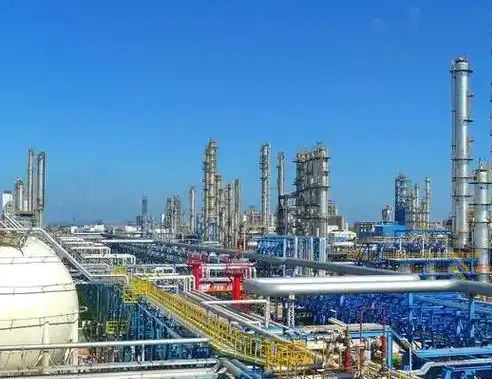Selection of centrifugal pumps in the petrochemical industry
The selection of centrifugal pumps in the petrochemical industry is a complex and critical process that requires comprehensive consideration of multiple factors to ensure that the selected pump type can meet process requirements and has high reliability and economy. The following are several main aspects that need to be paid attention to when selecting centrifugal pumps based on the characteristics of the petrochemical industry:
1. Flow and head
Flow requirements: Determine the required flow rate (m³/h or L/s), which is the basic basis for selection. In the petrochemical industry, the flow demand is usually large, and the pump is required to be able to deliver fluids stably and continuously.
Head requirements: Head refers to the resistance that the pump can overcome and the ability to deliver fluids to a specified height or distance. In petrochemical plants, the head requirements may vary depending on the process flow.
2. Medium characteristics
Physical properties: Understand the physical properties of the liquid, such as density, viscosity, and temperature, which will directly affect the performance and selection of the pump. For example, high-viscosity liquids may require the selection of pumps with larger impeller diameters and inlet and outlet diameters.
Chemical properties: Consider the chemical properties of the liquid, such as corrosiveness and chemical reactivity. Commonly used media in the petrochemical industry are often corrosive, flammable and explosive. Therefore, pumps with good corrosion resistance and explosion-proof performance should be selected, and appropriate materials and seals should be selected.
3. Pump type and structure
Pump type selection: Select the appropriate pump type according to the characteristics of the medium and the requirements of the process flow. For example, when the medium is a volatile medium such as liquefied hydrocarbons, a low cavitation margin pump (such as a barrel pump) should be selected; when the medium contains solid particles, a wear-resistant or specially designed centrifugal pump should be selected.
Structural requirements: Consider the installation location, ambient temperature, relative humidity and other site conditions of the pump and select a suitable pump structure. For example, in outdoor or high temperature environments, high temperature and corrosion resistant pump body materials and seals should be selected; in occasions where explosion-proof is required, explosion-proof centrifugal pumps should be selected.
4. Economy and reliability
Initial investment cost: Compare the prices of different pump types and select products with high cost performance. At the same time, the operating cost of the pump should also be considered, including energy consumption, maintenance costs and equipment replacement cycle.
Reliability evaluation: Select brands and models with high reliability and low failure rate. You can learn about the performance and reliability of centrifugal pumps of different brands and models by consulting product manuals, user reviews, industry reports, etc.
5. Other factors
Manufacturing and inspection standards: When there are higher requirements (such as specified by the owner or customer), centrifugal pumps that meet the relevant manufacturing and inspection standards should be selected. These standards usually include international or domestic standards such as API, ANSI, and DIN.
After-sales service and support: Choose a supplier with good after-sales service and technical support to ensure timely and professional help during selection, installation, commissioning, and operation.
By comprehensively evaluating these factors and selecting a pump type that meets the requirements, you can ensure that the centrifugal pump operates stably in the petrochemical plant and meets production needs.





